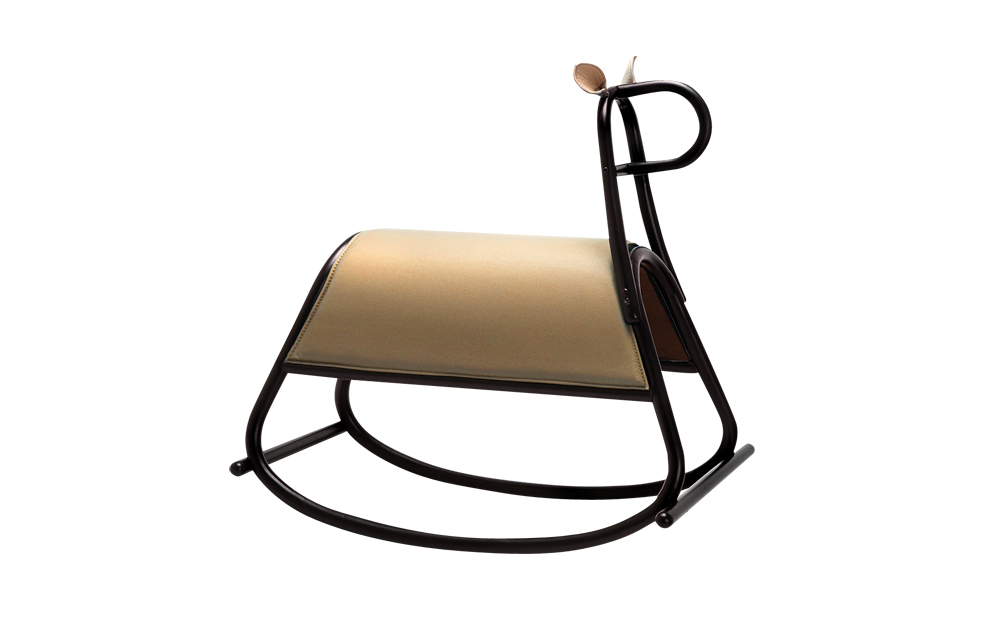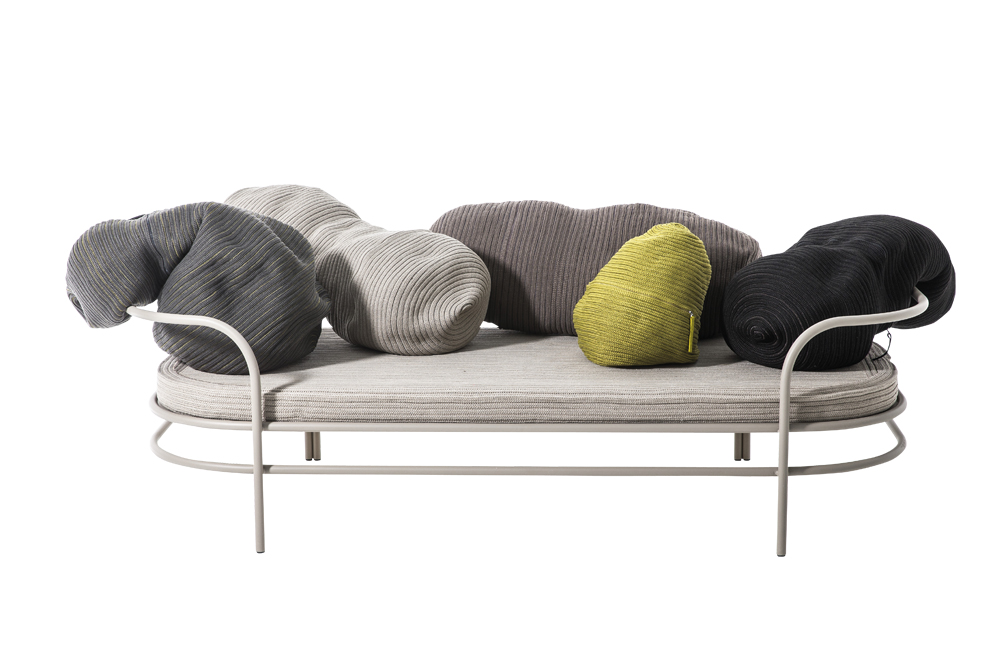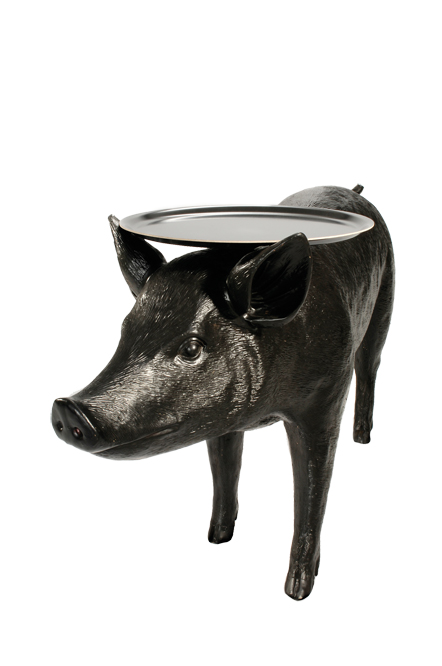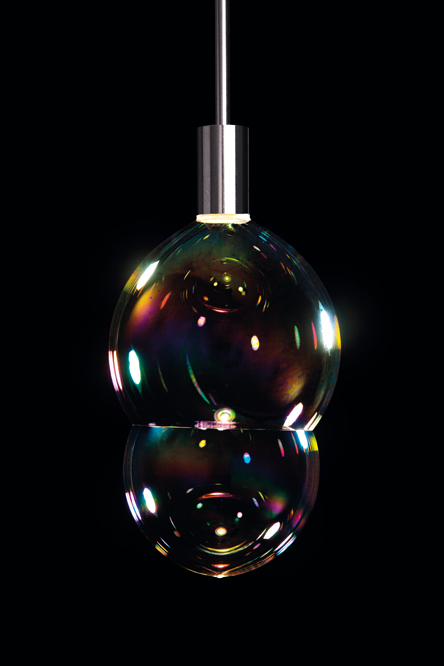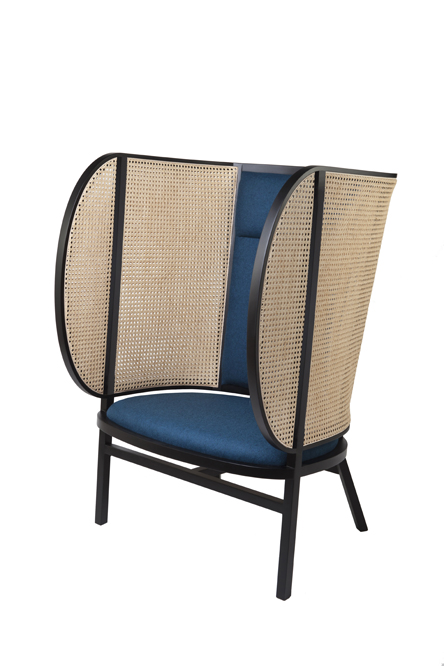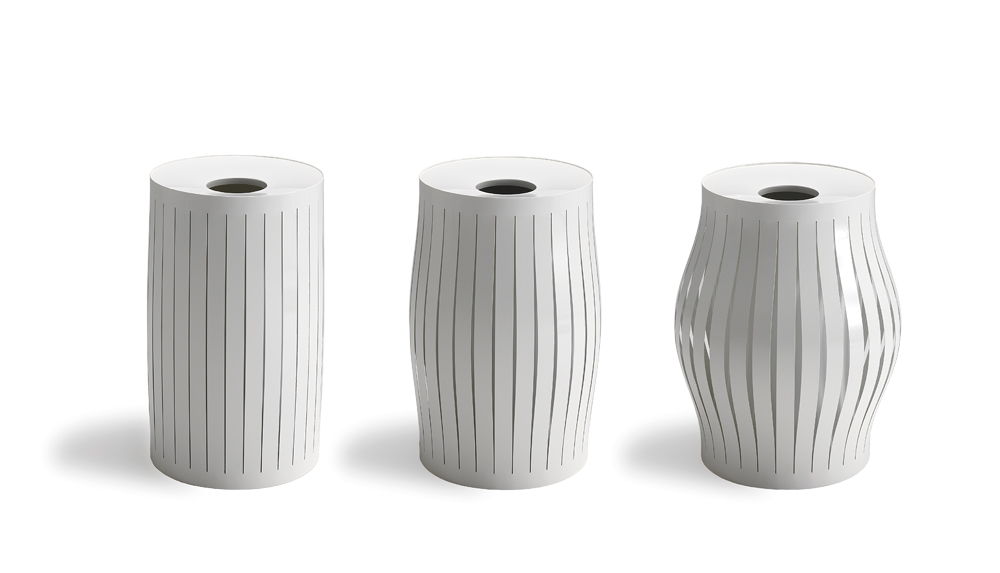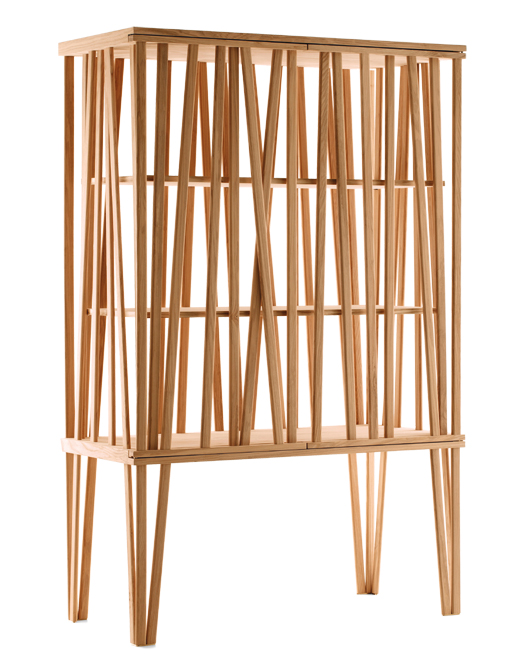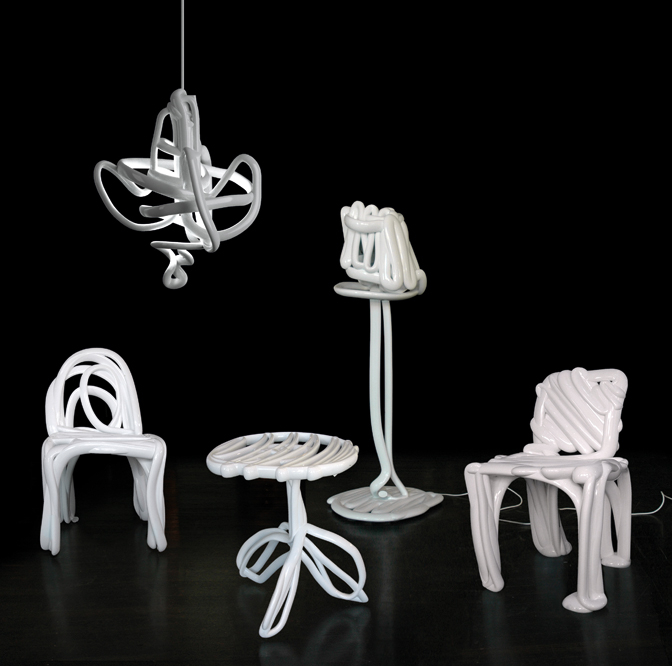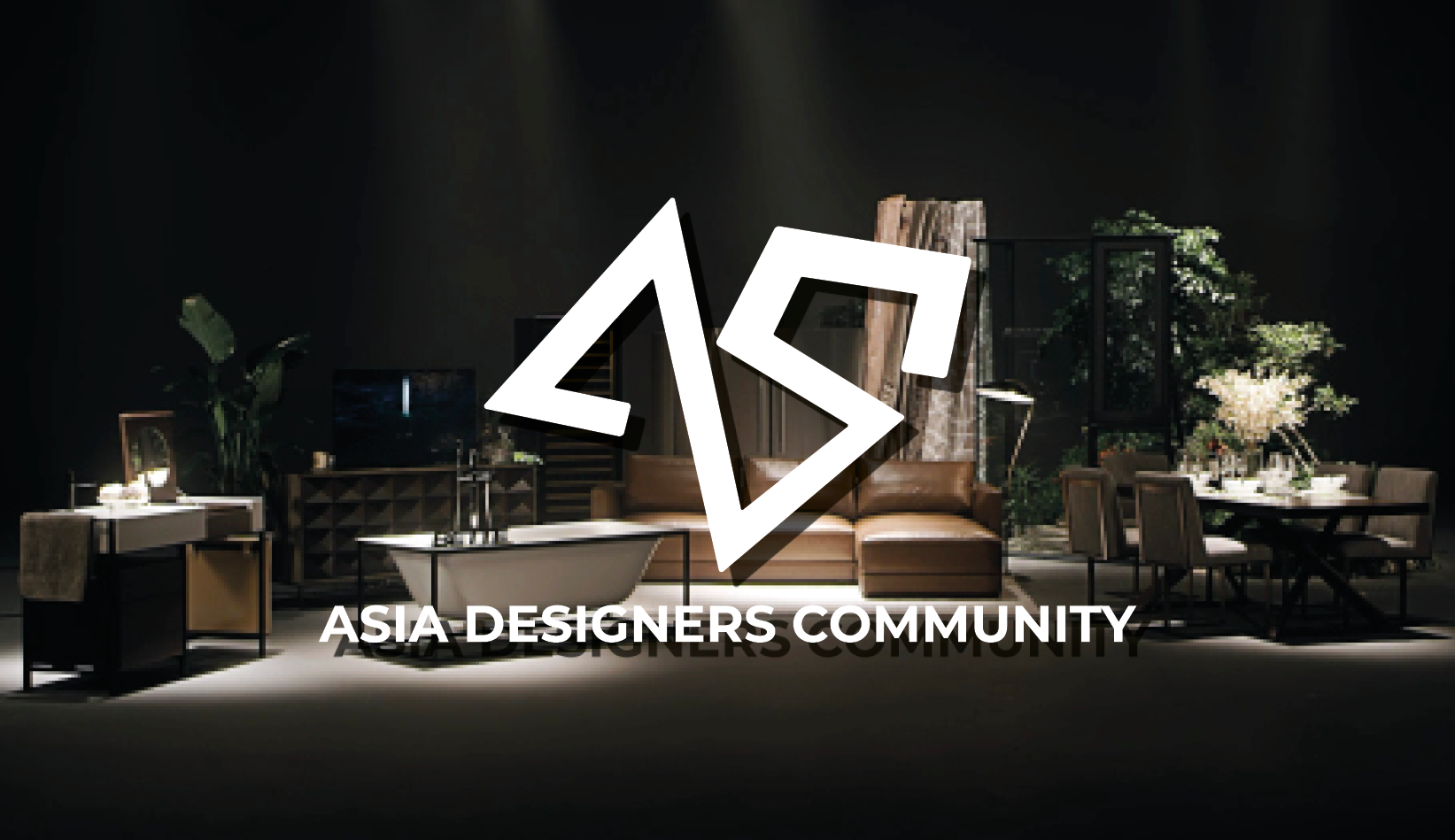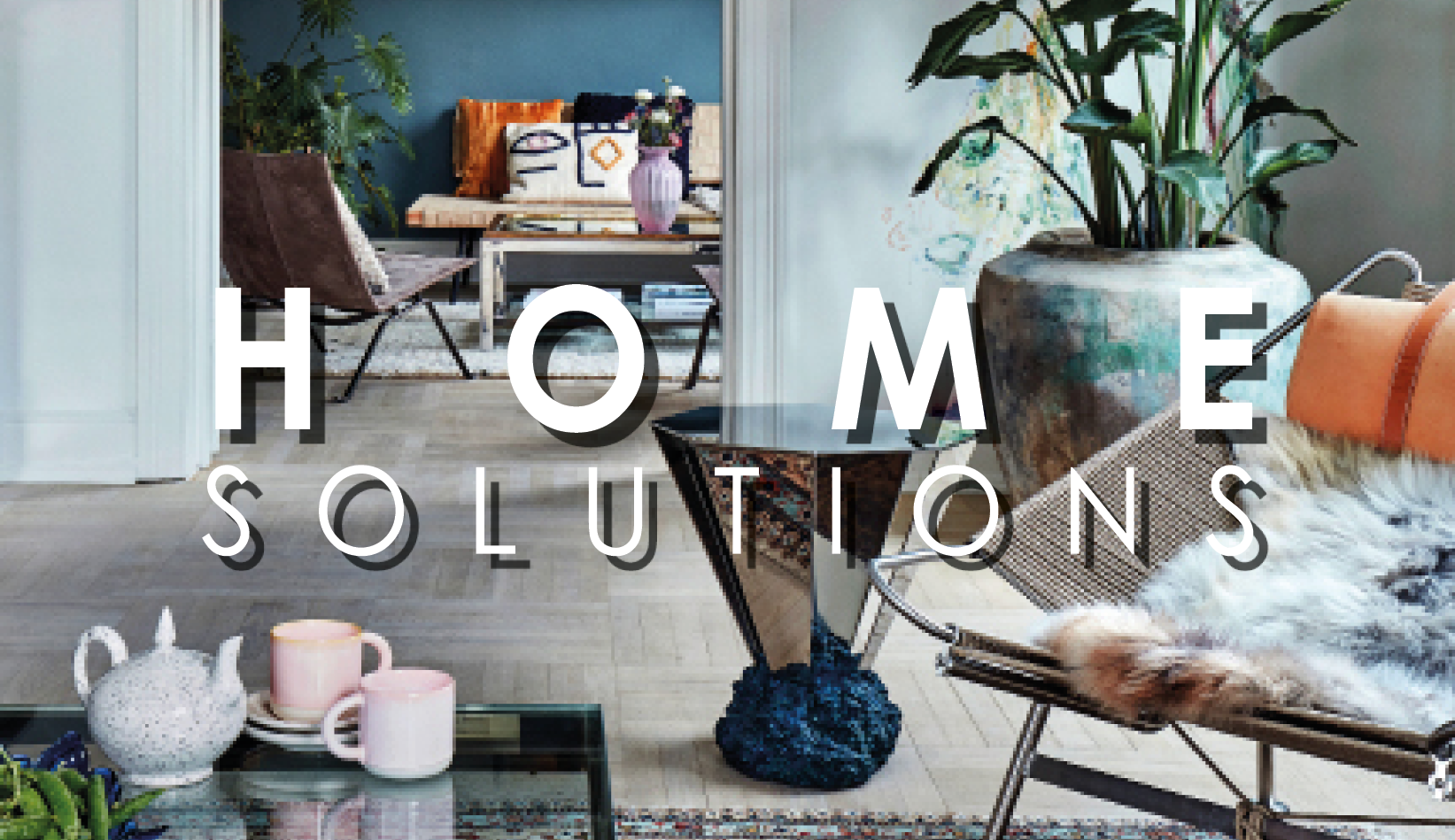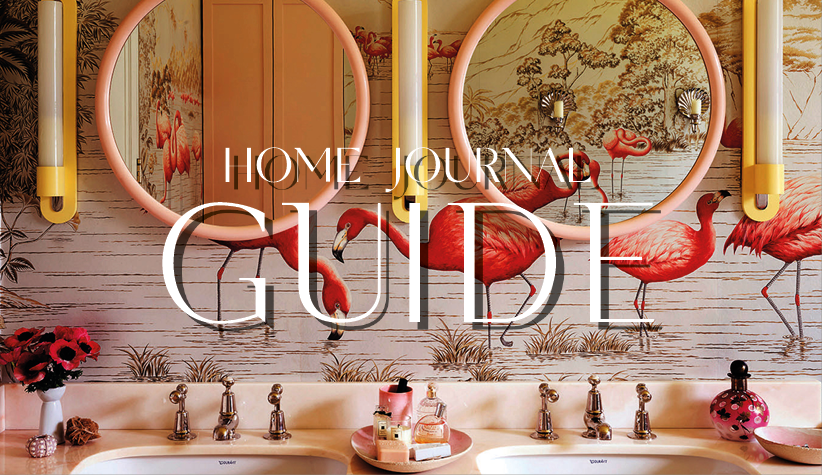Anna Lindgren and Sofia Lagerkvist – who together form the Swedish design studio Front – may be Scandinavian in origin, but the aesthetic of their projects is anything but. From their playful abstract series of furnishings, Sketch, that look like doodles come to life, to Surface Tension Lamp, an LED lamp that blows soap bubbles, Front’s works are often more than a little tongue-in-cheek, containing elements of the avant-garde and the experimental that keep us all guessing.
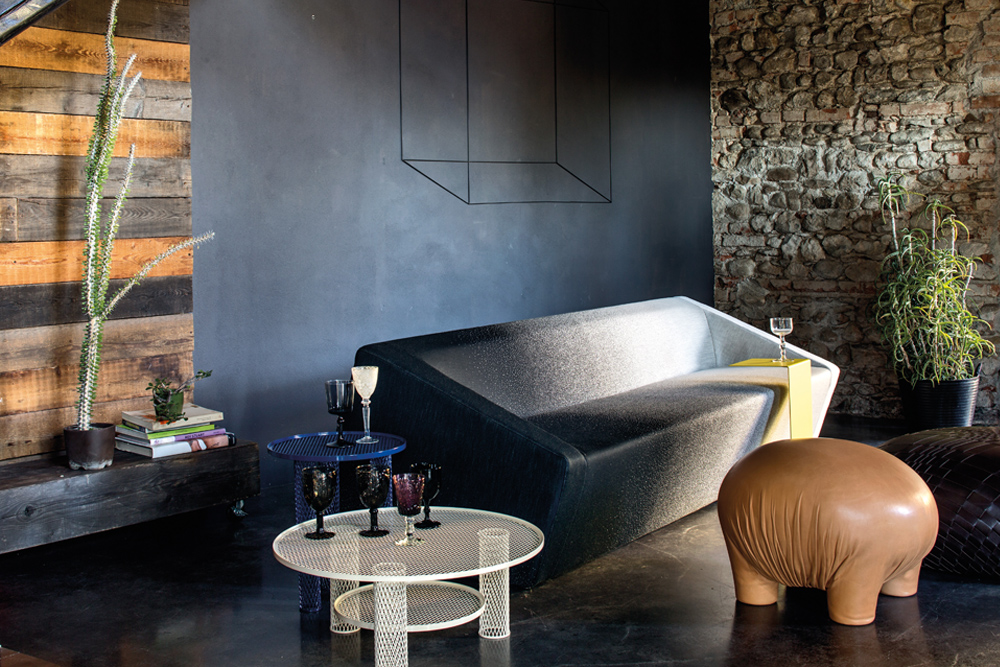
Each project is different, but we always try to communicate a story to the observer about our design process, about the material the product is made of, or about conventions within the design field. For our Wallpaper project for Eco, we used paper and cut out different shapes. We also made a three-dimensional wallpaper and a two-dimensional wallpaper with a three-dimensional effect from sketched paper cutouts. For the Furia rocking horse for Wiener GTV Design, we were inspired by the company’s rich history and their classic rocking chairs. When you collaborate with a brand, it is very important to understand it. By looking into its history, we hope to get closer to the brand’s mindset and way of working.
We met each other and became close friends at Konstfack [University of College, Arts, Crafts and Design in Stockholm], where we both studied industrial design. The industrial design department was very strict at that time regarding what sort of projects you could do and what sort of materials you could use. It was also very male-dominated. We discussed design a lot—what was interesting, how people used objects and what makes people relate to objects. When we graduated, we decided to work together and set up our own design studio based on our common interests.
One of our first projects ever was Design by Animals, where we invited animals to be a part of the design process. [The unique products included a clothes hanger created by a snake squeezing clay with its body, and a wallpaper that featured holes chewed out by rats.] We were still in school and worked every night after our classes. This was when the Swedish design scene wasn’t as diverse as it is now, so when we exhibited the project, a lot of people were upset and said that we criticised design, while other people loved it. But it started a discussion, which was something we wanted. I also think that that project included a lot of humour—and that is an important ingredient in life. We are very proud that we made it at that time; it was brave of us as young students.
It’s tricky to say where inspiration comes from. We always had a great interest in technology and science, but the most important thing is to be curious. We believe that everything is interesting when you gain more knowledge about the topic.
The post How Swedish studio Front brings the element of surprise to Scandinavian design appeared first on Home Journal.




